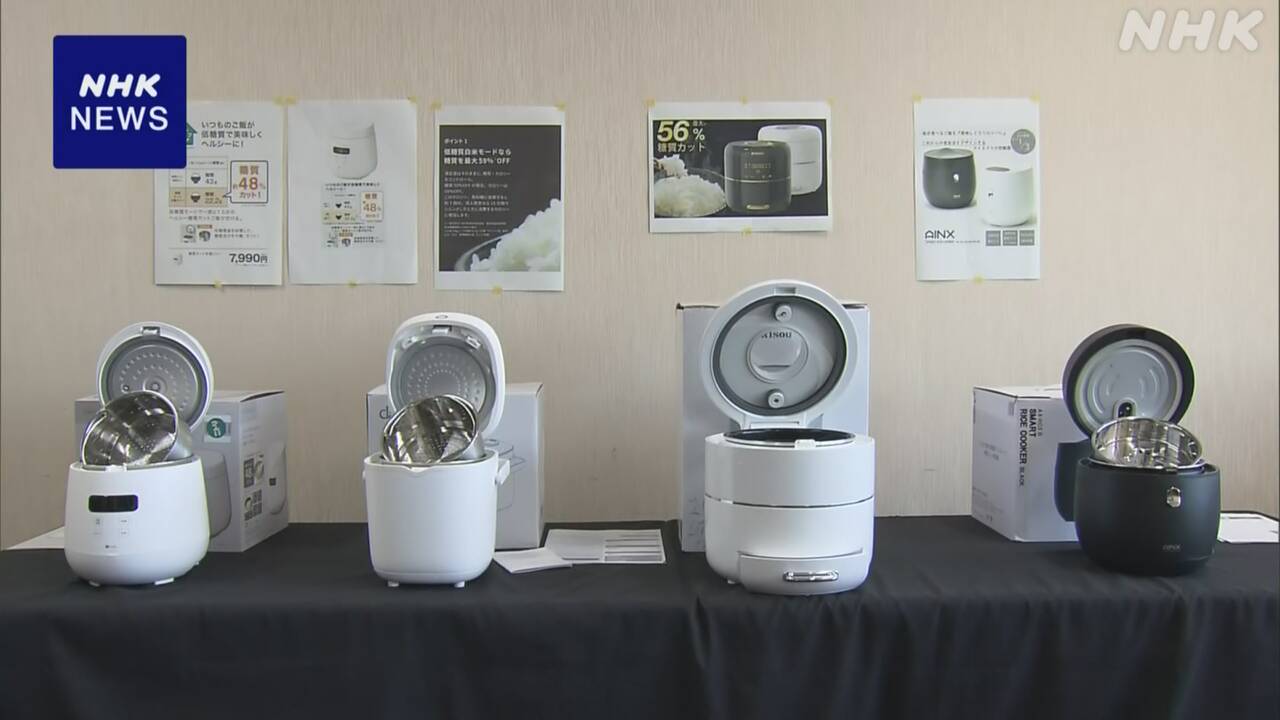Regarding a ``carbohydrate-cutting rice cooker'' that claims to be able to reduce the sugar content of rice, the claim that it can reduce the sugar content by about half even with normal cooking methods is considered to be a ``misperception of superiority'' under the Premiums and Representations Act. The Agency issued measures to prevent a recurrence of the incident to four companies, including Nitori, a major furniture and daily necessities company.
The companies that received the order were Nitori,
which is headquartered in Sapporo, Areti, which
sells
home appliances and is headquartered in Tokyo,
Risou Japan,
and AINX.
According to the Consumer Affairs Agency, last year, the four companies advertised on their stores, their own sales sites, and major e-commerce sites that ``a healthy version of regular rice with up to 59% less carbohydrates,'' and promoted rice cookers using this rice cooker. It was advertised that when cooked, the amount of carbohydrates could be reduced by 33% to 56% with the same amount of cooking as normal.
When the Consumer Affairs Agency requested the submission of supporting materials, four companies submitted test results conducted by third-party institutions, but none of these were recognized as reasonable grounds to support the advertisement. That is to say.
As a result, the Consumer Affairs Agency issued an order to the four companies to take measures to prevent recurrence, stating that the product constituted a "misperception of superiority" based on the Act on Premiums and Representations.
After receiving the order, Nitori said, ``We sincerely apologize for causing a great deal of worry and inconvenience to our customers and everyone involved.We take this matter seriously and will work to prevent it from happening again.'' In addition to this, three other sales companies also said, ``We will respond wholeheartedly and work to prevent this from happening again.''

